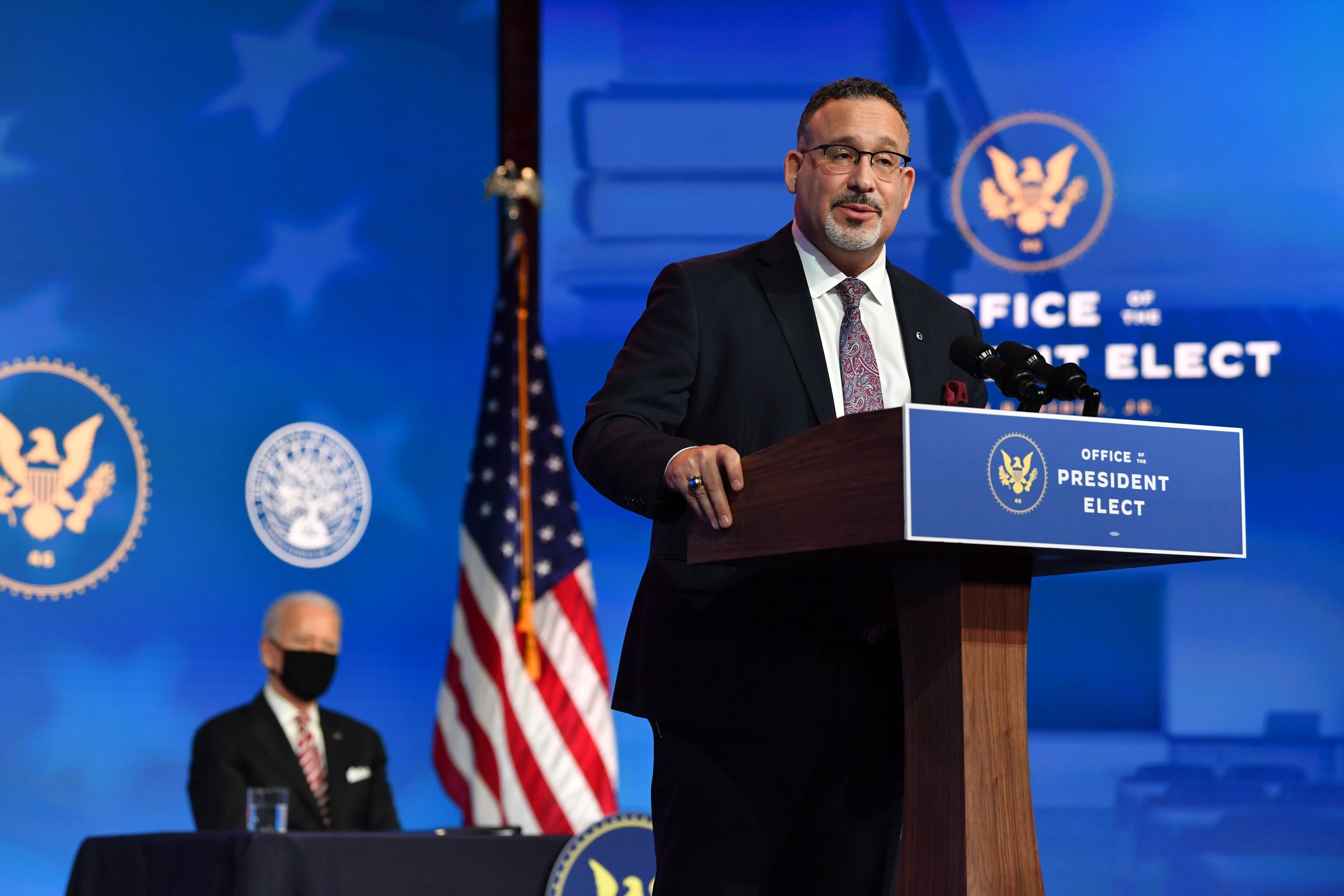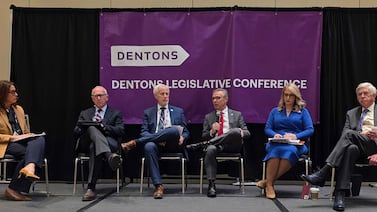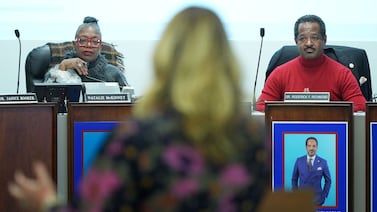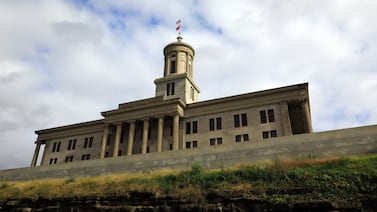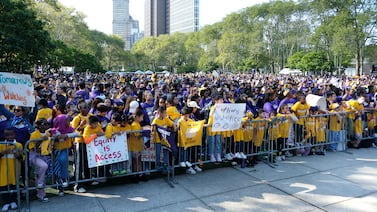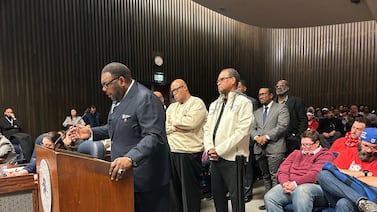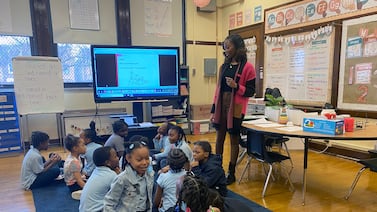Connecticut’s teachers and their unions were not happy.
It was June 2020, a few hours after the state education department released a school reopening guide that emphasized the importance of full-time, in-person instruction.
“Clearly what Connecticut’s students, their families and educators need is a lifeline, not an anchor — unfortunately that is all this so-called ‘plan’ appears to be,” leaders from the Connecticut Education Association and American Federation of Teachers Connecticut said in a joint statement.
So one might imagine that the unions’ relationship with the state’s education commissioner Miguel Cardona had deteriorated. In fact, before the sharply worded statement went out, AFT Connecticut’s president Jan Hochadel offered Cardona an early look at it. Hours before, Cardona had shared an advanced copy of the plan.
“I don’t [want] you to be blindsided … my educators are very upset,” Hochadel wrote in an email.
“Thanks for the heads up Jan. We will need to work together,” Cardona responded, according to emails obtained through a public records request by the Yankee Institute, a local conservative think tank.
The exchange, one of several last summer between Cardona and union leaders, illustrates his communication-heavy approach to navigating the politics of school reopening. By continuing a dialogue with often-resistant labor unions, while staunchly advocating for schools to offer in-person instruction, Joe Biden’s nominee for education secretary managed to maintain those relationships — even earning praise from local and national unions when he was selected.
That may preview how Cardona, whose confirmation hearing is set for Wednesday, would approach the job of education secretary, both in terms of dealing with school reopening and issues like whether to waive standardized testing this year.
“He wasn’t afraid to say what his thinking was, no matter what situation he was in,” said Fran Rabinowitz, the executive director of the Connecticut Association of Public School Superintendents. “But he could thread the needle. He could make people feel that they were heard.”
As the coronavirus pandemic upended education, Connecticut’s education commissioner moved quickly to set up regular meetings with organizations representing the state’s teachers, school boards, principals, and superintendents. Bob Rader, the executive director of the Connecticut State School Board Association, said their weekly meetings allowed all parties to share their perspectives.
“Even though things got rather testy on the outside, as far as the positions of the unions,” he said, “certainly he was always willing to listen and to talk about these issues.”
Indeed, the emails show that union leaders had an open line of communication with Cardona.
After the executive director of Connecticut Education Association raised a concern that teacher certification requirements would be waived, Cardona quickly responded and said they should talk. “Would welcome your thoughts,” Cardona wrote.
When AFT’s Hochadel shared some suggested reopening guidelines, Cardona responded, “We will be reviewing these recommendations carefully.”
In June, Cardona shared a copy of the statewide school opening recommendations with AFT and CEA leaders before they were made public. Later that evening, those same leaders blasted out the sharply critical press release they had previewed to Cardona.
A week later, Cardona emailed AFT and CEA leaders to suggest more discussion. “I am very interested in continuing regular dialogue on how to best proceed in CT and address the concerns expressed,” he wrote. “I wonder how you feel about regular conversations with the three of us to get down to the issues that need immediate action.”
Both agreed this would be a good idea.
“He had a wonderful labor-management relationship,” Hochadel told Chalkbeat. Cardona had an open-door policy, she said — “To the point that I can pick up the phone or go through his secretary and say, ‘Hey, do you have a couple minutes?’”
Still, she maintains a litany of substantive disagreements with Cardona.
“They love to say that [school] is the safest place to be right now,” she said. “We do not always agree with that.”
That sentiment is echoed by some teachers who have returned to buildings, like Kristen Record, a physics teacher and local union leader in Stratford, Connecticut.
She wishes Cardona had pushed districts that had reopened to close again when their case numbers rose above a threshold previously set by the state. She also would have liked him to encourage schools to offer accommodations for medically at-risk teachers.
“He’s been silent on that issue,” said Record. “That’s something I wish he had been more proactive about.”
A spokesperson for the state’s other teachers union, CEA, declined to comment. In December, CEA signed onto a statement with other unions praising Cardona. “While this challenge has been a rocky road — and many issues remain unresolved — teachers and school support staff have appreciated his openness and collaboration,” it said.
Cardona’s approach to labor unions is strikingly different than the tack taken by prior education secretary Betsy DeVos, even though both Cardona and DeVos have pressed school buildings to reopen.
DeVos had an acrimonious relationship with unions and regularly castigated them for purportedly blocking schools from reopening. “The only reason kids are not back to school in person in too many places is because the teachers unions have been standing in the way and have been playing politics with children’s lives,” she said on Fox Business in December.
Cardona has avoided such rhetoric.
“It seems like he is somebody who cares a lot about the voice of teachers unions and teachers,” said Leslie Finger, an education researcher at the University of North Texas who reviewed the emails between Cardona and union leaders. “I was really surprised actually at how warm and soliciting of their opinions he was.”
In a study published last year, Finger found evidence that districts with strong teachers unions have been less likely to open for in-person instruction. But she thinks Cardona’s approach to getting schools open is likely to prove more effective than DeVos’.
“Teachers unions are powerful in these districts,” she said. “I think they need a seat at the table for them to be willing to come back.”
It’s not clear precisely how effective Cardona’s approach was in Connecticut. Hochadel said that she believes districts were more likely to open buildings because of Cardona’s coaxing. When he was nominated for education secretary in December, 41% of districts were offering fully in-person instruction, 25% had adopted a hybrid model, and 34% were fully remote.
If confirmed, Cardona will face similar pressure on the national stage. President Biden has made reopening schools a priority, but he has avoided criticizing teachers unions, like Chicago’s, that have been reluctant to return. Instead, Biden has emphasized the need for additional money for schools.
“The goal of safely reopening schools — I think everyone shares that. It’s how we do that that really matters most,” Cardona told Connecticut Public Radio last week. “What we learned in Connecticut and what we can take nationally is that educators need a seat at the table,” he said.
Gwen Samuel, a parent and school choice advocate from Meriden, Connecticut, where Cardona spent most of his career, says it’s right for him to listen to teachers, but that they’re not the only group he should listen to.
“I’m hoping that the same listening ear that he gives to unions, he gives to families,” she said. “Treat us all as experts in our lane.”

